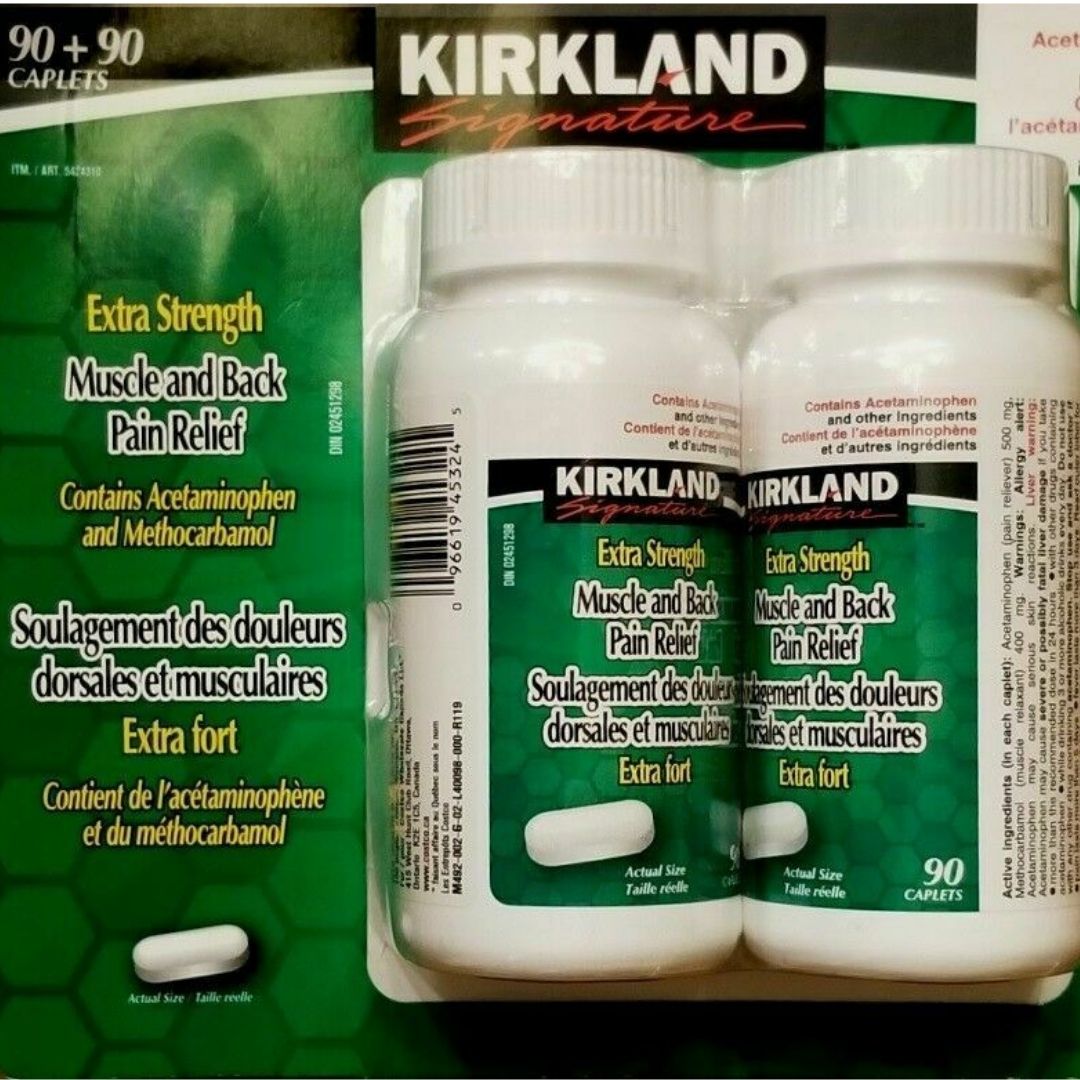Health
Unlocking the Power of Vitamin B12: A Comprehensive Guide

In the pursuit of optimal health, it’s essential to pay attention to the vitamins and minerals that our bodies need. One such crucial nutrient is vitamin B12. This water-soluble vitamin plays a vital role in various bodily functions and offers a multitude of health benefits. In this article, we will delve into the world of vitamin B12, exploring its functions, sources, signs of deficiency, and the importance of maintaining adequate levels. At Genesis Supplements USA, we recognize its significance. Our B12 supplements are meticulously crafted to support your wellness journey. Whether you’re an athlete seeking enhanced performance, a busy professional combating fatigue, or anyone aiming for a vibrant life, our products provide the B12 boost your body deserves.
What Is Vitamin B12?
Vitamin B12, also known as cobalamin, is a complex water-soluble vitamin that is essential for a wide range of bodily functions. It is unique among the B vitamins because it contains cobalt, a mineral that gives it its cobalamin name.
The Role of Vitamin B12
Vitamin B12 is crucial for several important functions in the body:
1. DNA Synthesis: Vitamin B12 is essential for the production and maintenance of DNA, the genetic material in all cells.
2. Red Blood Cell Formation: It plays a pivotal role in the formation of red blood cells. Without sufficient B12, red blood cells can become abnormally large and unable to function properly, leading to a condition known as megaloblastic anemia.
3. Nervous System Function: Vitamin B12 supports the health and proper functioning of the nervous system. It is involved in the production of myelin, a protective sheath that surrounds nerve fibers.
4. Energy Metabolism: B12 helps convert food into energy by aiding in the breakdown of carbohydrates and fats. This can help combat fatigue and promote overall vitality.
Sources of Vitamin B12
Vitamin B12 is predominantly found in animal-based foods, making it a challenge for vegetarians and vegans to meet their recommended intake. Good dietary sources of B12 include:
– Meat: Beef, pork, lamb, and poultry are rich sources of vitamin B12.
– Fish and Seafood: Salmon, trout, tuna, clams, and mussels are excellent sources.
– Dairy Products: Milk, cheese, and yogurt contain B12.
– Eggs: Eggs, particularly the yolks, contain B12.
– Fortified Foods: Some plant-based foods, such as breakfast cereals, plant-based milk (like almond or soy milk), and nutritional yeast, are fortified with B12.
Signs of Vitamin B12 Deficiency
Vitamin B12 deficiency can have a profound impact on your health. Recognizing the signs early is crucial to prevent severe complications. Common symptoms of B12 deficiency include:
1. Fatigue: A lack of energy is a typical early symptom.
2. Anemia: Megaloblastic anemia can lead to weakness and pale skin.
3. Nervous System Issues: These can include numbness and tingling in the hands and feet, difficulty walking, and memory problems.
4. Mood Changes: Deficiency can lead to mood swings, depression, and even dementia in severe cases.
5. Digestive Problems: Some individuals may experience digestive issues like diarrhea or constipation.
6. Vision Problems: Blurred or distorted vision may occur.
Preventing B12 Deficiency
Ensuring you get an adequate intake of vitamin B12 is essential. Here are some tips for preventing deficiency:
1. Dietary Sources: Include B12-rich foods in your diet if you are not following a vegetarian or vegan diet.
2. Supplements: If you are following a strict vegetarian or vegan diet, or if you have absorption issues, consider B12 supplements.
3. Regular Check-ups: Regular visits to your healthcare provider can help detect and address deficiency early.
4. Fortified Foods: Utilize B12-fortified foods, especially if you follow a plant-based diet.
5. Injections: In severe cases of B12 deficiency, your healthcare provider may recommend B12 injections to quickly restore your levels.
In conclusion, vitamin B12 is a vital nutrient that plays a crucial role in various bodily functions. Understanding its importance, dietary sources and the signs of deficiency can help you take proactive steps to ensure you maintain optimal B12 levels. Whether you obtain it from your diet or through supplements, prioritizing your B12 intake is a significant step towards achieving and maintaining good health. With Genesis Supplements USA, you’re not just taking supplements; you’re embracing a commitment to better health. Discover the benefits of vitamin B12 with us, and experience the Genesis difference. Your health is our priority.
For more information, contact us:
Genesis Supplements USA
(512) 862-9568
Health
Chronicles of Pain Management with Over The Counter Medicines

Chronic pain is an invisible burden that millions carry every day. It can come from a sprained ankle, a tension headache, or the deep ache of arthritis. While prescription medications and medical procedures are valuable for managing severe pain, there’s a vast array of over-the-counter (OTC) pain relievers that offer a world of relief. Here are the top benefits of using OTC medicines to alleviate pain.
Immediate Relief: The Quick-Acting Advantage of OTC Medications
OTC pain relievers, for example, acetaminophen and ibuprofen, are designed for fast absorption, offering swift relief. This immediacy is vital for those who need to manage sudden pain spikes without the delay of a doctor’s appointment.
Accessibility: OTC Pain Relievers’ Easy Availability
Unlike prescription drugs, OTC pain medications are readily available at any pharmacy, grocery store, or online. This easy access means relief is always close, crucial when pain strikes unexpectedly.
Cost-Effective: The Economic Benefit of Over-The-Counter Options
OTC pain relievers are generally more reasonable than prescription medicines, making them a cost-effective choice for controlling pain. They provide a budget-friendly alternative for those without insurance or drugs not protected by insurance programs.
Variety of Choices: A Range of Medications for Different Types of Pain
The range of OTC medications available means there’s likely a product specifically suited to your type of pain. The options are diverse, whether it’s ibuprofen for inflammation, acetaminophen for fever and aches, or aspirin for cardiovascular health.
Self-Management: Empowerment Through Personal Pain Control
OTC medications empower individuals to manage their pain independently. This self-management encourages a sense of control over one’s health and well-being, which can be psychologically beneficial.
Lower Risk Than Prescription Medications: Understanding the Safety Profile of OTCs
While all medications carry some risk, OTC pain relievers generally have a lower risk profile compared to prescription drugs when used as directed. This makes them a safer choice for many people, especially when considering the potential for addiction or misuse associated with some prescription pain medications.
Convenience: The Ease of Use Without Needing a Prescription
The convenience of OTC medications cannot be overstated. There’s no need to see a doctor for a prescription, saving time and resources. This convenience is a significant advantage for those with minor injuries or transient pain.
Complementary Therapy: Using OTCs Alongside Other Pain Management Techniques
OTC pain relievers can be used with other pain management methods, such as physical treatment, acupuncture, or chiropractic care. This multimodal approach to pain management often yields the best results.
Localized Treatment: Topical OTCs for Targeted Relief
Topical OTC treatments like creams, gels, and patches offer localized relief right where it hurts, with minimal systemic side effects. They are perfect for muscle strains, sprains, and joint pain and can be used in specific areas without affecting the rest of the body.
Familiarity: OTC Medications and Personal Experience
Most people have used an OTC pain reliever at some point in their lives, making them a familiar choice for managing pain. This familiarity can provide peace of mind and confidence in the effectiveness of these medications.
Diverse Uses: Other Benefits of Over-The-Counter Pain Relievers
Besides managing pain, OTC medications have other uses and benefits. For example, some can alleviate cold symptoms, reduce fever, or treat menstrual cramps. This versatility makes them a staple in many households for various health needs.
Educated Decisions: The Benefit of OTC Labels and Resources for Informed Choices
OTC medications come with detailed labels and instructions, allowing customers to make informed judgments about pain management. Additionally, pharmacists are readily available to answer questions and provide guidance on the safe use of these medications.
Potential Side Effects: The Downsides to Consider with OTC Medications
While OTC pain relievers provide immediate relief, it’s essential to consider potential side effects. Typical side effects include constipation, dizziness, upset abdomen, and, in other circumstances, rashes. Long-term use, or usage at higher-than-recommended doses, can result in additional extreme issues such as kidney damage, liver failure, or gastrointestinal bleeding. It’s vital to follow the procedures supplied by the manufacturer and confer with your healthcare provider if you have any concerns or adverse reactions.
Conclusion
Over-the-counter medications are a valuable asset in the pain management toolkit. They provide quick, accessible, and cost-effective relief for various pain conditions. While they are not a panacea and should be used responsibly, their benefits are undeniable. They empower individuals to take charge of their pain and maintain their quality of life. However, it’s always wise to confer with a healthcare professional if you have concerns about your pain or the suitability of OTC medications for your situation. With the right approach, OTC pain relievers can be a safe and practical way to manage pain and stay on the path to wellness.
Check Out: WellHealthOrganic Buffalo Milk Tag
Health
The Excellence of WellHealthOrganic Buffalo Milk Tag: A Symbol of Purity and Health

Welcome to the world of WellHealthOrganic Buffalo Milk Tag, where the harmony of organic goodness and the exceptional quality of buffalo milk is encapsulated in the revered WellHealthOrganic Buffalo Milk Tag. In this exploration, we delve into the distinctive qualities that make this tag more than a label—it’s a promise of unparalleled quality and holistic well-being.
The WellHealth Difference
At the heart of WellHealth lies an unwavering commitment to organic agricultural practices. The buffalo milk that forms the foundation of WellHealth’s dairy products is sourced from organically raised buffaloes. This commitment ensures that every step, from feeding to milking, aligns with the highest standards of organic farming, promoting sustainability and environmentally-friendly practices.
More About: Izabel Kovačić
A Nutrient-Rich Bounty
WellHealth takes pride in offering not just any milk but the finest organic buffalo milk, distinguished by its superior quantity and nutritional value. This nutrient-rich beverage goes beyond being a mere drink; it’s a potent source of essential proteins, vitamins, and minerals that contribute to improved bone health, increased immunity, and overall well-being.
Pureness through Organic Farming
The commitment to organic farming translates into a promise of purity. WellHealth ensures that its buffalo milk is free from harmful chemicals and pesticides, providing consumers with a delightful and healthy-tasting experience in every sip.
Understanding the Significance of the Tag
The WellHealthOrganic Buffalo Milk Tag is not merely a symbol; it’s a seal of authenticity and trust. This tag acts as a proof of the meticulous care and commitment invested in crafting each product. It signifies a dedication to delivering a top-quality, organic dairy experience to consumers.
The Road from Farm to Tag
Transparency is a cornerstone of WellHealth’s philosophy. The journey of buffalo milk from the farm to your plate is open for exploration. This transparency not only builds confidence but also empowers consumers to make informed choices about the dairy products they bring into their homes.
Quality Assurance Standards
The WellHealthOrganic Buffalo Milk Tag represents adherence to stringent quality control standards. At every stage of production, from the health of buffaloes to the hygiene conditions during milking, WellHealth ensures that the milk surpasses industry standards, guaranteeing top-notch quality.
Healthy Lifestyle with WellHealthOrganic Buffalo Milk Tag
Discover creative ways to integrate the WellHealthOrganic Buffalo Milk Tag into your daily diet. Whether enhancing your morning coffee or creating sweet, creamy desserts, the possibilities are endless. This organic milk is not just nutritious but opens up a world of culinary delights.
Participation in the WellHealth Community
Join the WellHealth community, where customer satisfaction takes center stage. WellHealth is dedicated to providing a positive experience for consumers, backed by ongoing customer support initiatives. The WellHealthOrganic Buffalo Milk Tag isn’t just a beverage; it’s an invitation to enjoy a nutritious and enjoyable journey.
Conclusion
In conclusion, the WellHealthOrganic Buffalo Milk Tag is more than a label; it signifies a pledge to purity, health, and a sustainable way of life. With each sip, relish the lusciousness of this delicious, organic drink, knowing that the tag is a guiding light on the path to well-being and happiness. Embrace the excellence encapsulated in the WellHealthOrganic Buffalo Milk Tag—a commitment to quality and a promise of a brighter, healthier future.
Health
Dengue Demystified: Understanding the Causes and Prevention

Dengue fever, often simply referred to as “dengue,” is a prevalent mosquito-borne illness that affects millions of people worldwide. As someone who values well-being and seeks to stay informed about health matters, understanding the causes and prevention of dengue is crucial. In this guide, we’ll delve into the intricacies of dengue, exploring its origins, transmission, and effective prevention strategies.
Unmasking Dengue
Dengue is caused by the dengue virus, transmitted primarily through the bite of infected Aedes mosquitoes, particularly Aedes aegypti. These mosquitoes thrive in urban areas, making dengue a significant health concern in densely populated regions. The virus has four distinct serotypes, DEN-1 through DEN-4, and infection with one serotype does not provide immunity against the others.
How Dengue Spreads
When an Aedes mosquito carrying the dengue virus bites a person, the virus enters the bloodstream, leading to the onset of dengue symptoms. Common signs include high fever, severe headache, pain behind the eyes, joint and muscle pain, rash, and mild bleeding. In severe cases, dengue can progress to a life-threatening condition known as dengue hemorrhagic fever.
Preventing Dengue: Your Shield Against the Virus
Now that we’ve demystified the basics of dengue, let’s focus on prevention strategies to safeguard yourself and your community. Here are key takeaways:
- Eliminate Mosquito Breeding Sites: Aedes mosquitoes breed in standing water, so regularly emptying containers that collect water around your home can significantly reduce the risk of mosquito breeding.
- Use Mosquito Repellents: Apply mosquito repellents containing DEET, picaridin, or oil of lemon eucalyptus to exposed skin and clothing, especially during peak mosquito activity times.
- Promote Community Awareness: Educate your community about dengue prevention measures, emphasizing the importance of personal and environmental hygiene. The more people are informed, the better we can collectively combat the spread of dengue.
Frequently Asked Questions (FAQs)
Q1: What is the incubation period for dengue?
The incubation period for dengue is typically 4 to 10 days after being bitten by an infected mosquito.
Q2: Can dengue be transmitted from person to person?
No, dengue is not directly transmitted from person to person. It is solely transmitted through the bite of an infected mosquito.
Q3: Are there specific medications for treating dengue?
There is no specific antiviral medication for treating dengue. Supportive care, such as staying hydrated and managing symptoms, is essential.
Q4: Is there a vaccine for dengue?
Yes, a dengue vaccine is available and can provide some level of protection against the virus. However, it is essential to consult with healthcare professionals to determine its suitability for individuals.
Q5: Can dengue occur more than once in a person’s lifetime?
Yes, it is possible to be infected with different serotypes of the dengue virus throughout one’s life.
Q6: How can travelers protect themselves from dengue?
Travelers should take precautions, such as using mosquito repellents, wearing long-sleeved clothing, and staying in accommodations with screened windows to minimize the risk of mosquito bites.
In conclusion, understanding the causes and prevention of dengue is paramount for maintaining good health. By adopting proactive measures and spreading awareness within our communities, we can contribute to the collective effort against this mosquito-borne illness.
-

 Tech5 months ago
Tech5 months agoAll about https://infomania.space/ganar-dinero-paypal-1/293/2022/I
-

 Fashion7 months ago
Fashion7 months agoThe Fascinating Universe of Izabel Kovačić on Instagram
-

 Uncategorized6 months ago
Uncategorized6 months agoWhat is the Continental Breakfast Chair by Anna Uddenberg Explained
-

 Entertainment7 months ago
Entertainment7 months ago38 Old Lady Memes That Will Make Your Day
-

 Sports11 months ago
Sports11 months agoPhillies’ Aaron Altherr makes mind-boggling barehanded play
-

 Entertainment5 months ago
Entertainment5 months agoThe 500+ Pound Residents of the Rockies – The answer is Elk
-

 Entertainment7 years ago
Entertainment7 years agoThe old and New Edition cast comes together to perform
-

 Entertainment8 months ago
Entertainment8 months agoHubspot Call Center Integration 101: Everything You Need to Know



